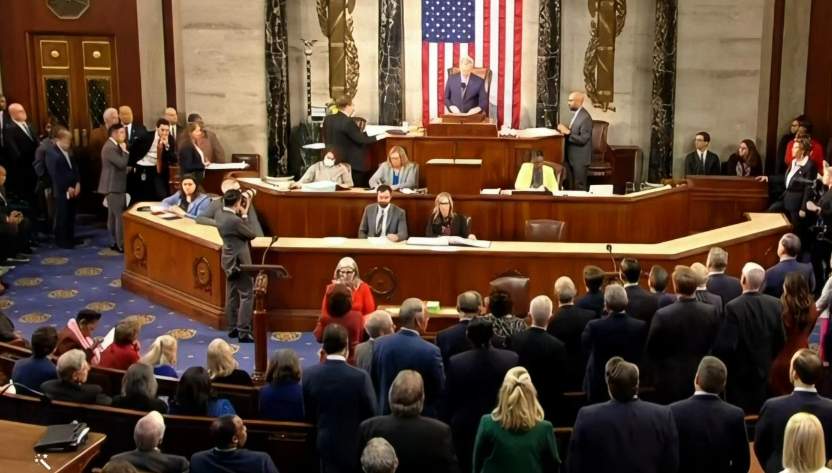A disagreement between Republicans caused a scenario not seen for 100 years in the lower house
After a historic vote in the House of Representatives of the United States Congress, Kevin McCarthy, Republican from California, managed to assume the presidency of this legislative body.
A split in the Republican Party caused the election to be held 15 times. This situation meant that the lower house could not formally start its work and was “stuck” for four days.
Although the conservatives won the majority in the last electoral process with 222 legislators, some 20 demonstrated their rejection of their party’s leader in the legislature by voting for other congressmen.
The Democrats from the beginning nominated Hakeem Jeffries, representative of New York, and closed ranks towards him always giving him 212 votes in most rounds of voting.
After negotiations among the Republicans, McCarthy secured the position in the fifteenth round, but without adding the 218 votes corresponding to a simple majority.
Six of his detractors were convinced not to give their support to even one postulate, when voting only mention “Present” without giving a specific name.
This type of abstention allowed the Republican leader to finally obtain the necessary result to be the new speaker of the House of Representatives, a position that previously belonged to Democrat Nancy Pelosi.
The last round concluded with 216 votes for McCarthy, 212 for Jeffries, and six “presents.”
Detractive Republicans say their House leader is not conservative enough and is not taking tough action against President Joe Biden.
McCarthy was inaugurated and the rest of the legislators were sworn in to start a new legislature in the political history of the United States.
The Republican, who promised subpoenas and investigations into the Democratic administration, thanked former President Donald Trump for standing by him and making calls to “help get those final votes.”
In the midst of the chaotic situation, McCarthy gave in to some demands from his detractors, such as the possibility of a single legislator being able to call a vote to remove him.
Historical records indicate that for 100 years there were not so many rounds of voting to choose the speaker of the House. In 1923, the position was appointed after a ninth ballot.
The longest trial occurred in 1855 and lasted for two months, with 133 rounds, during the slavery debates before the Civil War broke out.

